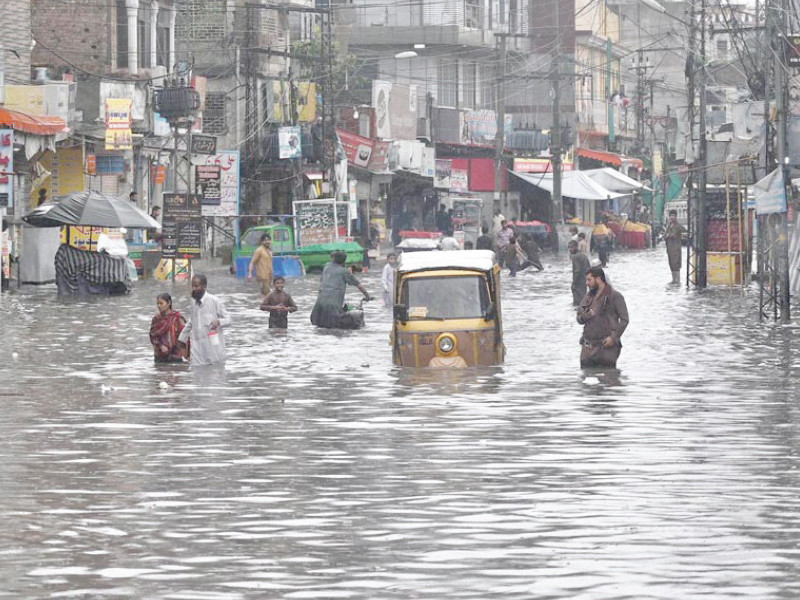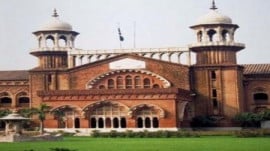
The first rain of the monsoon season has starkly revealed the inadequacies of the district administration, Water and Sanitation Agency (WASA), Municipal Corporation (MC), and cantonment boards in their flood prevention efforts.
Despite their assurances of preparedness, the heavy downpour left low-lying areas severely inundated, leading to water entering homes, shops, and markets, and tragically resulting in the drowning of a child.
The rain filled the Rawal, Khanpur, and Simly dams to capacity, prompting concerns about a potential crisis and the decision to open the spillway of the Rawal Dam. Although the rain eventually ceased, stagnant water remained in low-lying areas for hours, causing extensive damage to goods and furniture valued at millions of rupees.
The 16 km Nullah Leh and 15 rain drains in the city's cantonment areas were overwhelmed, with hundreds of sewers clogged by garbage from streets and roads. Sewage-laden water inundated streets and homes in low-lying areas for six hours, creating an unbearable stench.
Civil society organisations have called for an audit of the expenditure of Rs70 million for silt cleaning of Nullah Leh, Rs80 million for cleaning 15 storm drains, and a total of Rs150 million. They allege that private companies hired to clear the drains merely dumped the waste on the sides, which has now re-entered the storm drains.
Heavy rainfall caused sewage water to accumulate in the underpasses of Committee Chowk Rahimabad bridges, hindering vehicular movement. Additionally, several major roads in the city, including VVIP Roads, Mall Road, Airport Road, Murree Road, Murir Hasan Chowk, Liaquat Bagh Chowk, Liaquat Road, Ganjmandi, Gwalmandi, Iqbal Road, Rawal Road, Syedpur Road, Tench Bhatta Road, Bhatta Chowk Road, Adiala Road, and others, experienced standing water, causing significant difficulties for commuters.
The heavy downpour also led to water accumulation in various streets and colonies, including Javed Colony, Nadeem Colony, Fazalabad, Dhok Elahi Bakhsh, Dhok Khaba Kari Road, Sadiqabad Chowk, Cha Sultan, Tahmaspabad, Adara, People's Colony, slums, and Sharon Colony. This resulted in water entering homes and damaging valuables.
In these low-lying areas, water remained stagnant in the streets and homes for four hours, causing significant disruptions. Rickshaw and Bykea drivers took advantage of the situation, charging exorbitant fares of Rs100 to help people cross the standing water.
Zaheer Awan, Chairman of the Citizen Action Committee, has demanded an audit of the Rs150 million allocated for silt cleaning. He emphasised that the recent flooding from the first rain is just the beginning of the monsoon season, which is expected to last until August 31.
The forecast of three more days of rain has heightened concerns among residents of low-lying areas. People living along the banks of Nullah Lai and storm drains have been displaced, with all huts along the canal banks demolished. In response to the rainy season, the Rawalpindi deputy commissioner has imposed a ban under Section 144 on activities such as dumping waste and building materials into rain drains and bathing in rain drains, including the Soan River.
Asghar Ali, a resident of Nadeem Colony, reported that two feet of water entered his street during the rain, destroying household goods. In contrast, another resident, Faisal Abbasi, managed to save valuable items by moving them to the second floor of his home, which remained safe during the rain.







1732688687-5/Copy-of-Untitled-(95)1732688687-5-270x192.webp)










COMMENTS
Comments are moderated and generally will be posted if they are on-topic and not abusive.
For more information, please see our Comments FAQ